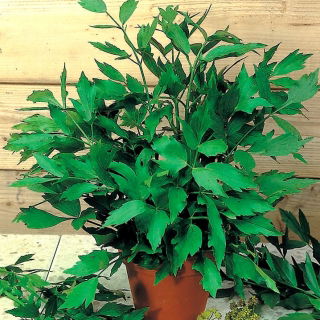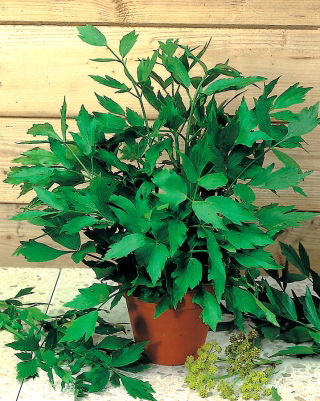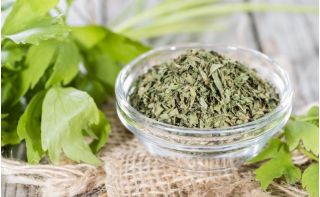- US Dollars ($)
- Euro (€)
- GB Pound (£)
- Chinese Yuan (元)
- Swedish krona (kr)
- Russian ruble (₽)
- Hong Kong dollar (HK$)
- Norwegian krone (kr)
- Indian rupee (₹)
- New Taiwan dollar (NT$)
- Danish krone (kr)
- Hungarian forint (Ft)
- Saudi riyal (SR)
- Bulgarian lev (лв)
- Czech koruna (Kč)
- Israeli shekel (₪)
- Indonesian rupiah (Rp)
- Japanese yen (¥)
- Korean won (₩)
- Malaysian ringgit (RM)
- Romanian leu (leu)
- Swiss franc (Fr.)
- Serbian dinar (din)
- Vietnamese đồng (₫)
- Ukrainian hryvnia (₴)
- Turkish lira (₺)
- Thai baht (฿)
- CAD Dollars ($)
- English
- German - Deutsch
- French - Français
- Spanish - Español
- Italian - Italiano
- Swedish - Svenska
- Russian - Русский
- Norwegian - Norsk
- Danish - Dansk
- Nederlands
- Estonian - Eesti keel
- Finnish - Suomalainen
- Hungarian - Magyar
- Latvian - Latviešu valoda
- Lithuanian - Lietuvių
- Portuguese - Português
- Chinese - 中文
- العربية - Arab-c
- Bulgarian - български
- Czech - Čeština
- Greek - Ελληνικά
- پارسی - Persian
- עברית - Abrit
- Croatian - Hrvatski
- Indonesian - Bahasa Indonesia
- Japan - 日本語
- Korean - 한국어
- Malay - Melayu
- Romanian - Română
- Slovak - Slovák
- Slovenian - Slovenščina
- Serbian - Српски
- Thai - ไทย
- Turkish - Türkçe
- Ukrainian - Українська
- Vietnamese - Tiếng Việt
- Hindi - हिंदी
- Categories
-
Seeds
-
Vegetable Seeds
-
Flower Seeds
-
- Ageratum, Flossflower seeds
- Alyssum seeds
- Amaranth Seeds
- Aquilegia, Columbine seeds
- Aster seeds
- Aubrieta Seeds
- Begonia seeds
- Bellis perennis, Daisy seeds
- Californian Poppy Seeds
- Campanula, Bellflower seeds
- Celosia, Cocksbomb seeds
- Centaurea, Cornflower seeds
- Chrysanthemum, Painted Daisy seeds
- Coleus seeds
- Convolvulus seeds
- Coreopsis seeds
- Cosmos seeds
-
- Datura seeds
- Dianthus, Carnation seeds
- Echinacea, Coneflower seeds
- Flower seed mixtures
- Forget me not seeds
- Foxglove seeds
- Gaillardia Seeds
- Gazania seeds
- Geranium, Pelargonium seeds
- Godetia seeds
- Gourd, Ornamental squash seeds
- Gypsophila, Baby's Breath seeds
- Hollyhock seeds
- Impatiens seeds
- Ipomoea, Morning glory seeds
- Calabash, Bottle Gourd seeds
- Larkspur, Delphinium seeds
-
- Limonium, Statice seeds
- Lobelia seeds
- Lupin, Lupine seeds
- Lychnis, Catchfly seeds
- Mallow Seeds
- Marigold, Tagetes seeds
- Milkweed Seeds
- Nasturtium seeds
- Nemesia seeds
- Nepeta, catmint seeds
- Nicotiana, Ornamental Tobacco seeds
- Nigella, Love in a mist seeds
- Pansy seeds
- Petunia and Surfinia seeds
- Phlox seeds
- Poppy seeds
- Primula, Primrose seeds
-
- Red Valerian, Centranthus Seeds
- Ricinus, Castor bean seeds
- Runner bean seeds
- Safflower seeds
- Salvia, Ornamental sage seeds
- Snapdragon Seeds
- Stock seeds
- Strawflower, Golden everlasting seeds
- Sunflower seeds
- Sweet pea seeds
- Tunbergia, Black-eyed Susan Vine seeds
- Verbascum, Mullein seeds
- Verbena seeds
- Veronica, Speedwell seeds
- Viola, Violet seeds
- Zinnia seeds
-
- Herb Seeds
- Sprouting Seeds
-
Flower Bulbs
-
Garden Equipment
-
At home
- Around home
-
Fertilizers
-
- All-purpose fertilizers
- Autumn and winter fertilizers
- Blueberry fertilizers
- Boxwood fertilizers
- Bulb plants' fertilizers
- Grass and lawn fertilizers
- Citrus plant fertilizers
- Compost
- Conifer fertilizers
- Dolomite and lime fertilizers
- Dry powder fertilizers
- Fertilizers for balcony and terrace plants
- Fertilizers for moss-infected lawns
- Fertilizers in pump sprayers
-
- Fertilizers in watering cans
- Fertilizers sticks
- Fertilizers with leaf shine
- Flowering plant fertilizers
- Fruit fertilizers
- Fruit tree fertilizers
- Garden plant fertilizers
- Gel fertilizers
- Geranium fertilizers
- Green plant fertilizers
- Herb fertilizers
- Home plant fertilizers
- Hydrangea fertilizers
- Lavender fertilizers
-
Lovage (Levisticum officinale) is a perennial plant that creates a dense rosette of leaves that resemble cellery leaves in the first year of cultivation and sprouts flowering stalks in the following years. The whole plant excretes an intense aroma, also resembling cellery aroma. Lovage finds its use as seasoning plant, but its decorative habit allows it to play an ornamental role, too. Leaves, roots and seeds of lovage are used as seasoning. Leaves may be used fresh or dried in soups, salads, boiled fish, scrambled eggs and meat dishes. Ground lovage roots are used in stock cubes and other herbal mixes, while its seeds that have anise-like taste, are added to marinated vegetables and mushrooms or used for sprinkling boiled potatoes and rice.
All parts of lovage are rich in essential oils, vitamins, sugars and resin. Lovage stimulates appetite and improves functioning of the digestive system. It is considered a strong aphrodisiac in folk medicine.
You may grow lovage on a border or in a pot, where it would look amazing. You should select deep pots for container cultivation in order to provide lovage roots with enough space to develop. The soil needs to be fertile and permeable. Sunny sites work best in lovage cultivation, but this plant will also tolerate partial shade. Lovage seeds are sown in April, two per hole, maintaining 20 - 30 cm spacings between them. These plants need regular watering during the whole vegetation period. Lovage achieves its seasoning properties in the second year of cultivation. This plant will winter on balconies, provided it is covered. The overground part dies in winter to grow back abundantly in spring. Greens for the seasonings are harvested from May to September. You may grow this plant in a container for many years, remembering to exchange the container for a bigger one every four years.
Package contains 0.5 g of Home Garden lovage seeds, as well as the sow-by date and growing instructions.
- Weight: 0.5 g
- Use: fresh or dried leaves in soups, salads, boiled fish, scrambled eggs and meat dishes; ground roots in stock cubes and in marinades
- Harvest time: May - September
- Vegetation form: perennial
- Flower type: dense rosettes of cellery-like leaves
- Site: sunny or partially shady; fertile, permeable soil
New


My account
Store
Customer information
Information

© -2025 Gardenseedsmarket.








